Which one to choose: Hardware VPN device vs software VPN?

Bisma Farrukh
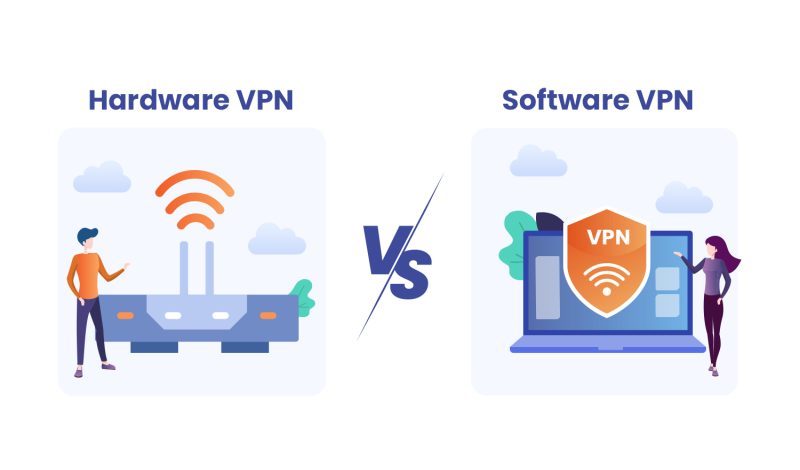
When it comes to security, there are two main types of VPN: software and hardware. Both provide different levels of protection and are capable of securing your online activities. The main difference between these two is the level of security they offer. However, both have pros and cons. So, let’s dig more in detail.
Table of Contents
What is VPN?
A Virtual Private Network (VPN) is a service that helps in staying private online. It creates an encrypted connection where you browse the web securely and surfs anonymously. It enables users to send and receive data across public networks..
What is Hardware VPN
A hardware VPN is a device with a dedicated processor to provide the VPN features and authentication. A hardware VPN also tends to have hardware firewall capabilities.VPN routers are also called hardware VPNs. It helps in managing VPN connections and allows several devices to connect to VPN.
Hardware VPN appliances are better for remote access for business purposes. Setting a physical VPN device is difficult as it requires knowledge about its setup and cost of the setup but it’s worth the hassle. It provides:
- Best encryption
- High level security
- Easy remote access
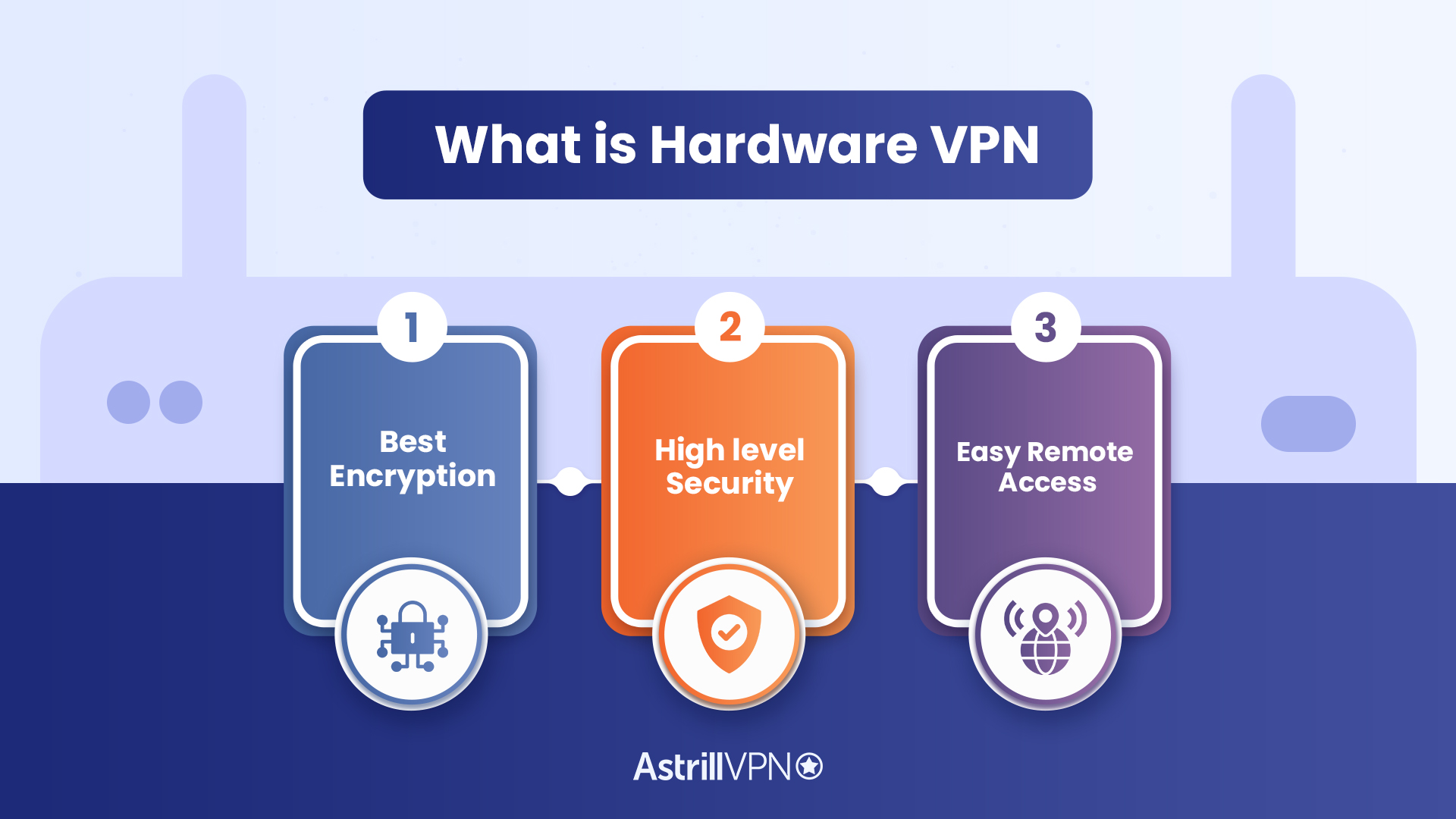
What is Software VPN
Software VPNs don’t require a physical device, such as a router, as they can be installed and maintained without additional cost. It can be directly installed on devices and applications. That’s why data is encrypted on the user’s end. In most of the devices, third party services are offered to customers. Astrill VPN is a great choice in this case.
Both types of VPNs offer strong security, but a software VPN is more convenient for everyday use. The software automatically connects to a server nearest to your location and handles updates.
The software VPN:
- Requires no hardware setup knowledge
- Less costly
- Offers several virtual locations
Nowadays, both types of VPNs are business oriented. But the question is which one to pick to better suit your business needs?
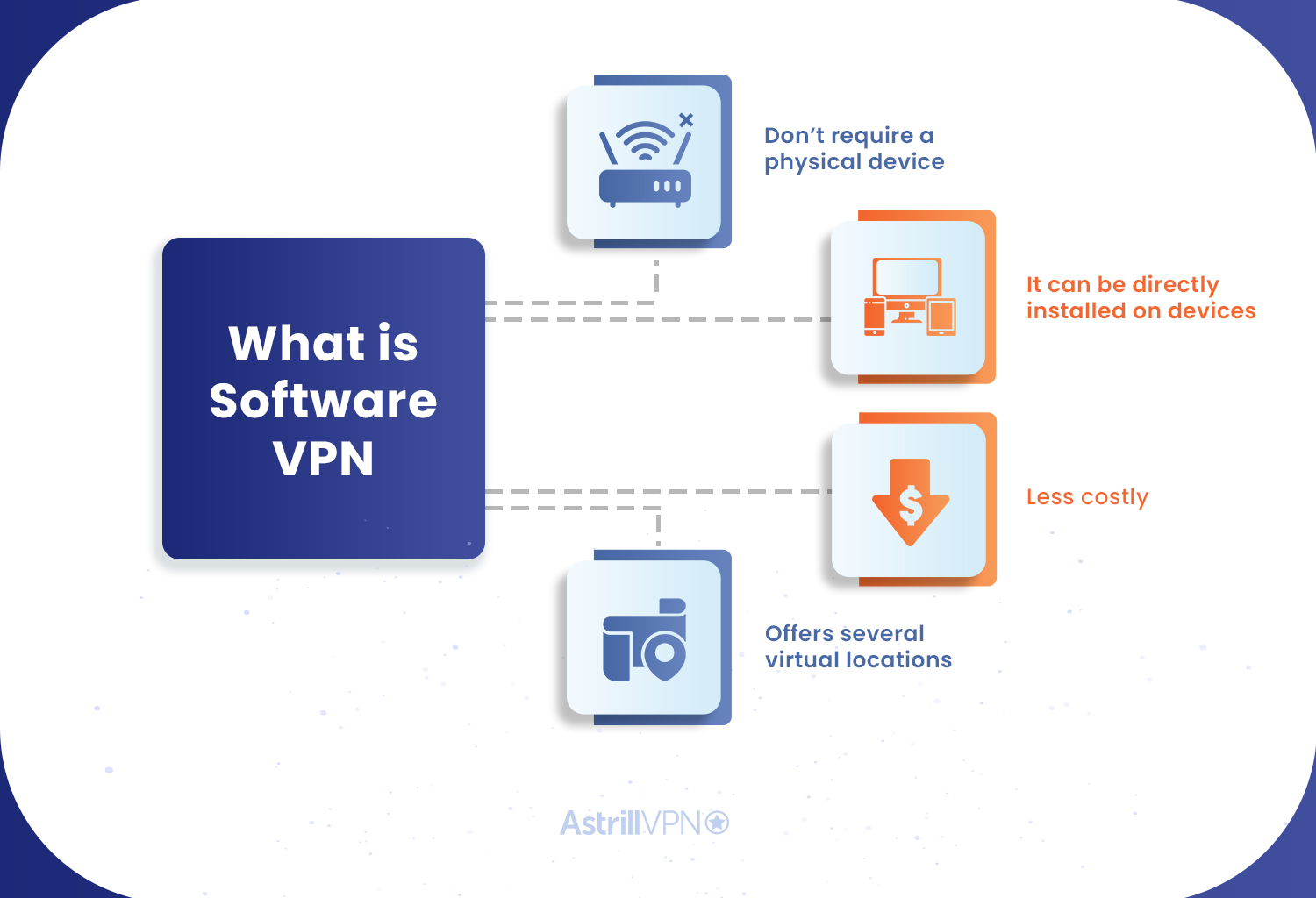
Hardware vs Software VPN
When choosing between a hardware and software VPN, consider the following vital factors.
1. Connection
The hardware VPN usually has limitations on the number of devices you can connect to. This means that if you’re not comfortable attempting to manage your own VPN, you might want to consider software VPN instead.
Software VPNs have an unlimited number of connections, and can be purchased for a fraction of the cost of a hardware VPN. Moreover, software VPNs do not require any networking expertise and can be used by remote workers. Astrill VPN provides the best speed and pricing plan for this purpose. Regardless of what you’d prefer, you can easily get both types of VPN up and running without a large IT department.
2. Installation
Hardware VPN is a more complicated solution than software VPN. You’ll need to purchase a hardware VPN device and install vpn hardware for home. It also has a lot of disadvantages, such as being difficult to install and not having an automatic update feature. However, these disadvantages are less of a problem for large companies, and more of a hassle for individual users.
A software VPN like Astrill VPN app tends to take less time to install and set up for your employees. It will be up and running within a few hours as it has a dedicated customer support 24/7.
3. Remote access
Both offer encrypted remote access, but hardware is better suited for remote employees who want to access the company’s intranet. Setting it up is difficult but your company’s IT department can help with that. All Software VPNs don’t provide remote access to a company’s internal network, but it does provide secure remote access to the company’s intranet.
4. Security
While both types of VPN gear are secure, the security benefits of hardware solutions are less than those of software. Because of this, companies that build hardware VPNs are slower to patch potential vulnerabilities, so you should consider that fact when choosing a hardware solution.
However, encryption protocol for hardware is best as it operates in a controlled environment where the user is in complete control of data security. In software vpn, if a user clicks any unverified link then an online threat occurs so it operates in an uncontrolled environment.
Astrill VPN offers the best-dedicated servers across the world which helps you in providing you the best and secure surfing experience.
5. Upgrading
It is important to consider the costs of maintaining and upgrading software VPN on a regular basis, as software VPNs can become very cumbersome in some network environments.
6. Setup
While software VPNs are easier to use, hardware VPNs are also more complex and can require a significant amount of technical knowledge to set up. In addition, the setup and maintenance of a hardware VPN is not as easy as software, and it can be costly to install. Hardware VPNs are more suitable for companies that require a high level of security and protection.
7. Reliability
Although hardware VPNs are more expensive to produce, they can be ideal for large-scale operations. A hardware VPN is also much more reliable than Software VPN in large corporate-sized businesses. Software VPNs are more reliable for medium and small-sized businesses as it can be easier to manage.
8. Pricing
Using a hardware VPN requires buying a device, and this can be an expensive proposition. A software VPN requires a monthly or yearly subscription. You pay for the software once, and it takes care of all the maintenance for you. Astrill VPN is the best VPN to use for this purpose as its pricing plans are as follows:
9. Maintenance
While both types of VPN client software are scalable, hardware VPNs have the advantage of requiring minimal maintenance and no software updates.
10. CPU
While hardware VPNs are expensive, they require a dedicated CPU to encrypt and decrypt data passing through the device. Because the hardware VPN acts like a firewall, it is far more likely to be compromised by cybercriminals. In contrast, software VPNs CPU requires low level usage.
11. Size
Another major difference between a hardware VPN and a software VPN is size. Hardware VPNs can be larger, so businesses will need to buy additional units to accommodate the growth of their business while software VPNs are digital.
12. Scalability
When deciding between a hardware VPN and a software VPN, consider the scalability factor. While software-based solutions can scale beyond a certain threshold, larger enterprises are more likely to use a virtual appliance, which can offer better scalability based on demand.
13. Server Location
A hardware VPN also differs from a software VPN in server location. In most cases, a hardware VPN is better. For one, you can connect to multiple locations with the same service. In contrast, a software VPN only has one location and will slow your connection down.
Pros and Cons of Hardware VPN vs Software VPN
| Hardware VPN | Software VPN |
|---|---|
| Pros | Pros |
| A hardware VPN is specially developed for remote access. | The VPN software is designed to be compatible with a variety of operating systems, and many devices already have in-built VPN clients. |
| A hardware VPN provides a high level of security. | A software VPN may be easier to manage and configure. Users can easily install software programs from the provider’s website or download them from Google Play or the App Store. These apps provide simple settings and a user-friendly interface, as well as secure VPN protection. |
| Hardware VPNs provide dedicated servers and IPs. | Third-party VPN clients are also available for devices, which can be installed on the device. |
| Hardware VPN is a good option for large corporations. | Software VPNs are less costly. |
| Cons | Cons |
| Hardware VPN is a bad option for individual users. | Software VPNs aren’t scalable and don’t provide the same IP address every time you log in. |
| A hardware VPN requires manual configuration and may fail to protect devices. | Software VPNs don’t provide better remote access than hardware VPN. |
| A hardware VPN can cost hundreds of dollars. | Software VPNs don’t provide dedicated servers. |
| A large network is needed to scale hardware VPN. |
Advancements in Hardware VPN Technology
Hardware VPN technology has experienced significant advancements, driven by the ever-growing demand for secure and efficient network connectivity. These innovations have transformed the capabilities of hardware VPN devices, making them more versatile and adaptable to the evolving needs of modern organizations.
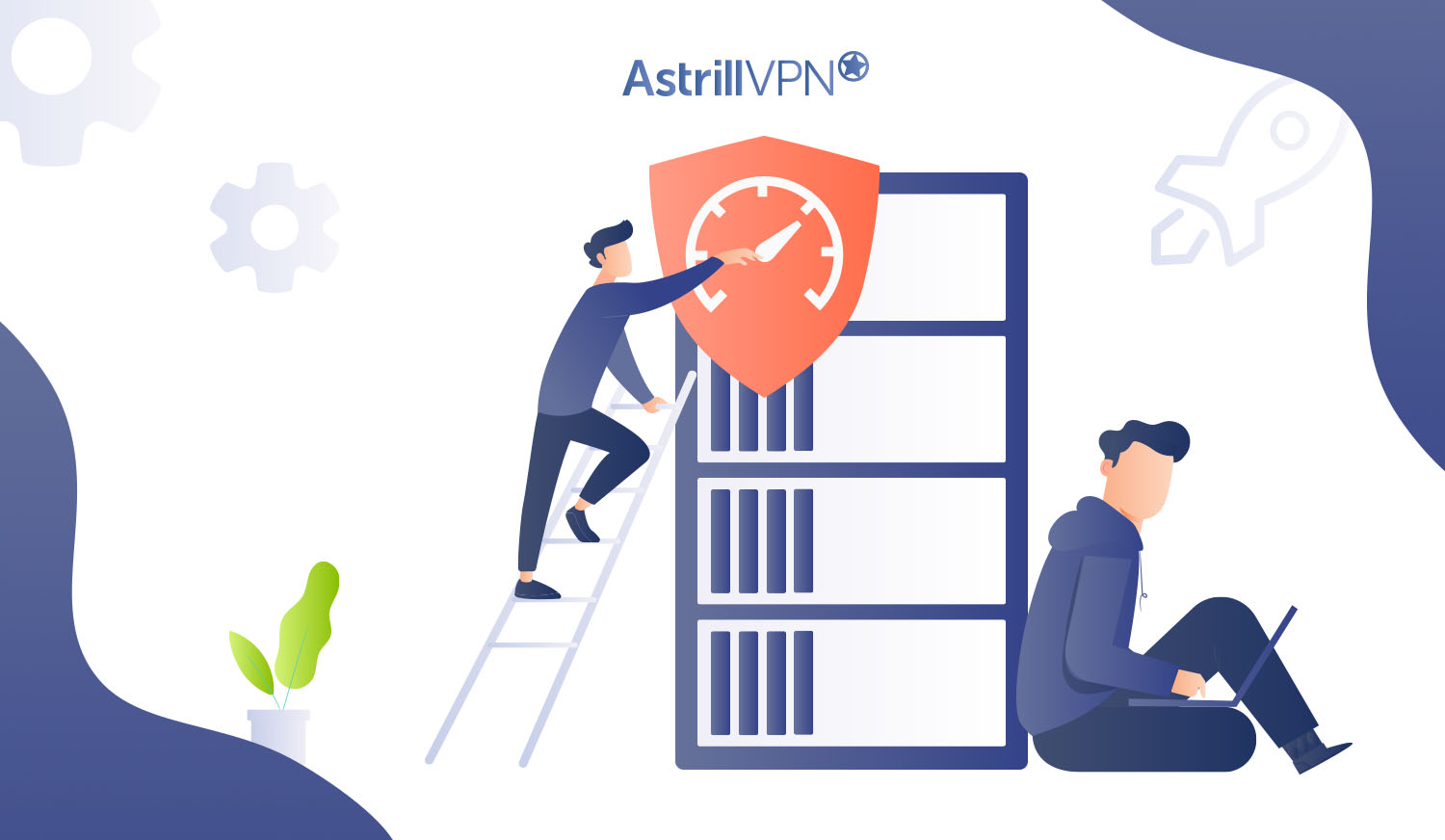
1. Multi-Protocol Support
Traditional hardware VPNs were often limited to a specific set of protocols. However, recent advancements have enabled hardware devices to support multiple protocols, allowing for excellent compatibility and seamless integration with various network environments.
2. High-Performance Processors
Hardware VPNs now feature more robust and specialized processors dedicated to encryption and decryption tasks. This results in faster data transmission and improved overall performance without compromising security
3. Scalability and Modular Design
Modern hardware VPN solutions often come with modular designs that allow organizations to scale their VPN capacity based on demand. This flexibility ensures businesses can adapt to changing network requirements without replacing entire systems.
4. Integrated Security Features
Hardware VPNs incorporate security features beyond encryption, such as intrusion detection and prevention systems (IDPS), firewall capabilities, and deep packet inspection. This consolidation of security functions enhances the overall protection offered by the device.
5. Cloud Integration and Hybrid Architectures
Advancements in hardware VPN technology have facilitated seamless integration with cloud services. Organizations can now establish secure connections between on-premises infrastructure and cloud platforms, creating hybrid architectures that combine the benefits of both environments.
Advancements Software VPN Innovations
Software VPN solutions have undergone rapid innovation, leveraging software-defined networking (SDN) and virtualization technologies to offer new capabilities and improved user experiences. These emerging innovations are shaping the future of software VPNs and expanding their potential applications.
1. SD-WAN Integration
Software-defined wide area network (SD-WAN) technology is being integrated into software VPN solutions, enhancing network performance and optimizing traffic routing. This integration improves the user experience by dynamically selecting the best path for data transmission.
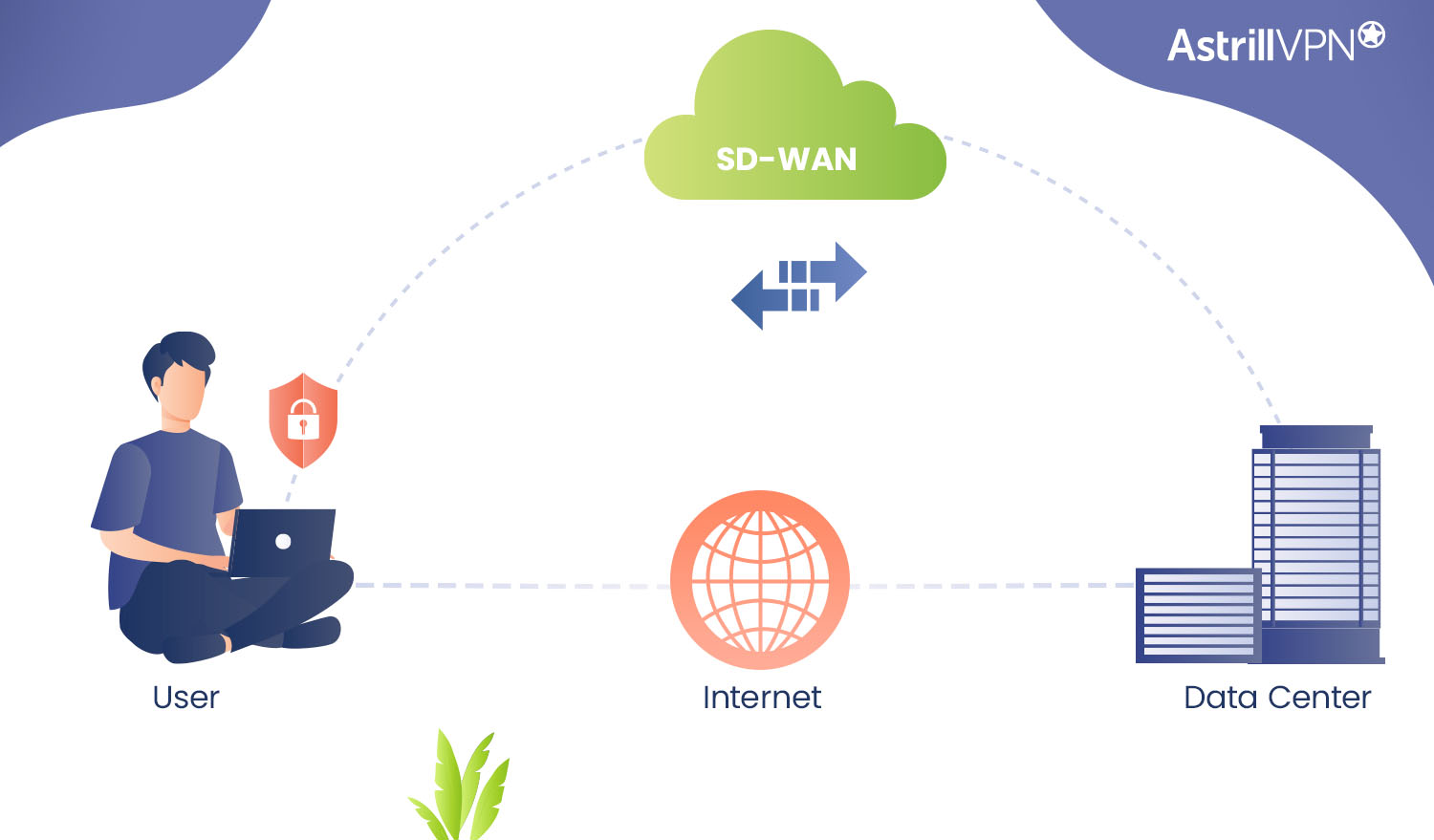
2. Zero Trust Architecture
Emerging software VPNs are adopting a zero-trust approach, where resource access is restricted and verified for each user and device. This approach enhances security by reducing the attack surface and preventing unauthorized access.
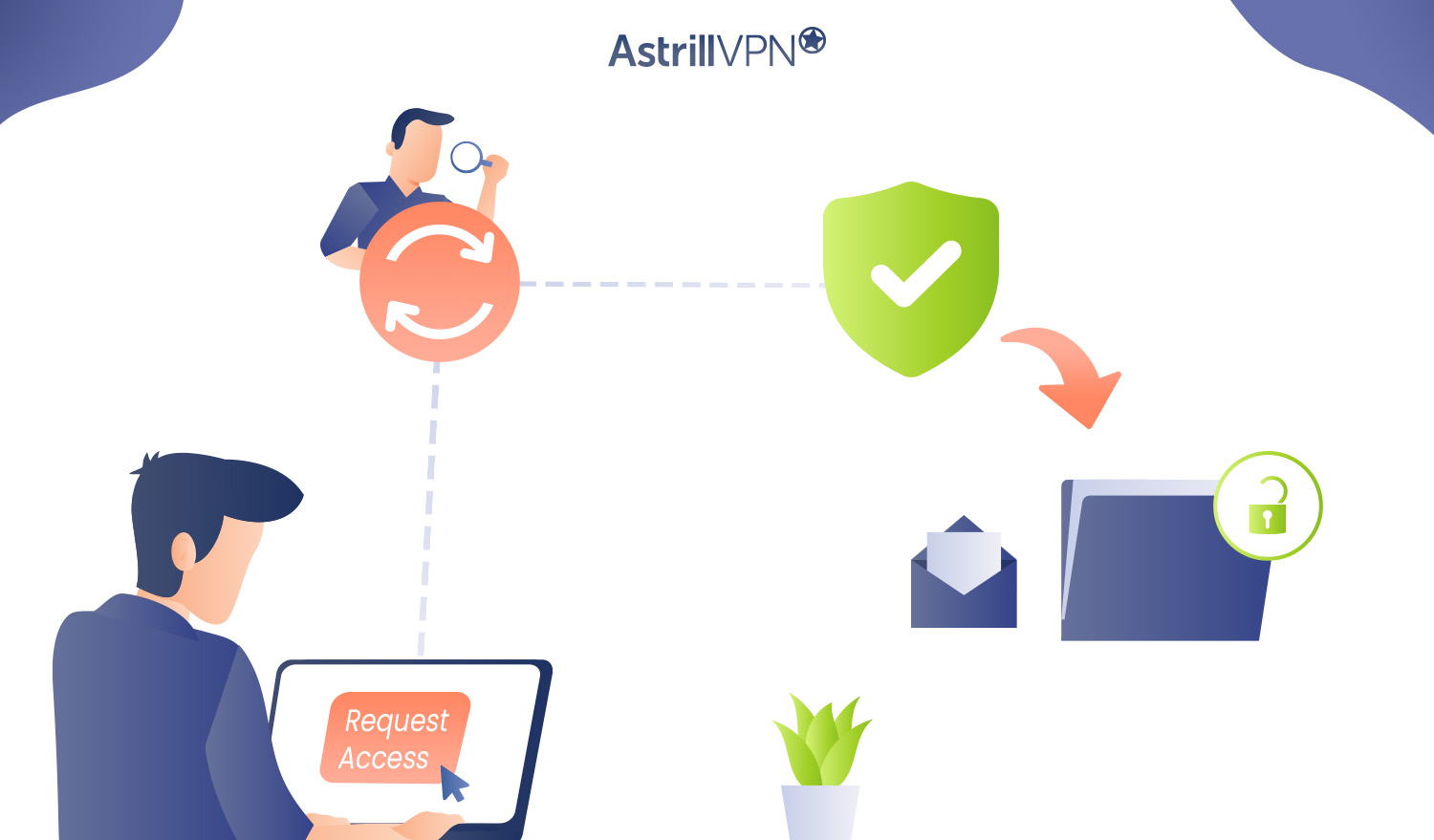
3. Containerized VPN Instances
Containerization technology allows software VPN instances to be packaged as lightweight containers. This enables faster deployment, scaling, and management of VPN resources, making it easier for organizations to adapt to changing demands.
4. User-Centric Interfaces
Software VPNs focus on user-centric design, offering intuitive interfaces that simplify connecting to VPN networks. User-friendly applications and mobile clients contribute to a seamless and hassle-free user experience.
5. AI-Powered Threat Detection
Some software VPN solutions incorporate artificial intelligence and machine learning algorithms to analyze network traffic for potential threats. These innovations enhance the VPN’s real-time ability to detect and mitigate malicious activities.
Post-Quantum Encryption
As the threat of quantum computing grows, emerging software VPNs are exploring post-quantum encryption algorithms to ensure long-term data security. These algorithms are designed to resist attacks from quantum computers, providing robust protection against future threats.
The Bottom Line
If you’re planning on using a VPN for business purposes, you need a secure solution that can protect your network from unauthorized access. There are many different types of software and hardware VPNs available. The best option for you will depend on the size of your business and your budget. Software VPNs tend to be easier to install and maintain, and they’re cheaper, too. For a small business, a software VPN might be all you need. Hardware VPNs may lack user-friendly interfaces and automatic updates. This is less of a problem for companies, but may be a hindrance for individual users. In either case, it’s important to know your options and make your choice according to that.
FAQs
Which one is better to choose : Hardware VPN vs Software VPN?
Software VPNs are easier to connect, setup, manage, scalable and less expensive. Hardware VPNs provide good remote connections and internal security. Also, it is totally dependent on your needs which type of VPN you want for your company and yourself.
Do I need hardware for a VPN?
For hardware VPN, a physical device is required. For software VPN, hardware is not required.You can download software VPN as secure and good as hardware VPN. In this way, you can avoid the hassle of buying the equipment for hardware VPN.
Do I need a separate VPN for each device?
No, you don’t need a separate VPN for each device. With a single subscription, you can connect to multiple devices. This is also known as simultaneous connections.
Is a hardware VPN better than a software VPN?
Hardware VPNs are more expensive, but they can scale to meet your needs as your company grows. For small businesses, software VPNs are easier to use, scale easily, and cost less. They are also cheaper and easier to install and maintain than hardware VPNs. You can also buy them at a discount if you buy a software VPN for your business. However, it is best to choose one that fits your needs.

No comments were posted yet